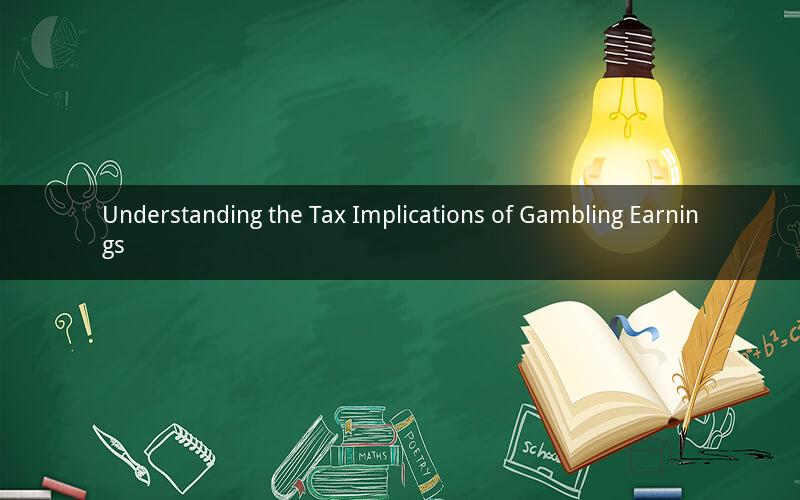
Gambling has always been a topic of interest for many people. Whether it's playing slots, poker, or betting on sports, the thrill of winning can be exhilarating. However, many gamblers are often unaware of the tax implications associated with their winnings. This article delves into the question of whether you get taxed for gambling and explores the various aspects surrounding this issue.
Do You Get Taxed for Gambling Earnings?
Yes, in most countries, you are required to pay taxes on your gambling earnings. This includes any winnings you receive from casinos, racetracks, sports betting, poker, and other forms of gambling. While the specific tax rates and regulations may vary depending on your location, it's crucial to understand the tax implications of gambling to avoid any legal repercussions.
Taxation on Gambling Earnings: A Closer Look
1. Reporting Requirements
In most countries, gambling winnings are considered taxable income and must be reported on your tax return. This means that you need to keep detailed records of all your gambling activities, including the amount won and the dates of each win. Failing to report gambling winnings can result in penalties and fines.
2. Taxable vs. Non-Taxable Winnings
While most gambling winnings are taxable, there are certain exceptions. For example, in some countries, lottery winnings below a certain threshold may be tax-free. It's essential to research the specific tax laws in your country to determine which winnings are taxable and which are not.
3. Tax Rates
The tax rates on gambling winnings vary depending on your country and sometimes even your state or region. In some countries, gambling winnings are taxed at the same rate as regular income, while in others, they may be taxed at a lower rate. It's crucial to consult with a tax professional or research the tax laws in your area to determine the appropriate tax rate for your gambling earnings.
4. Withholding Taxes
In some countries, gambling operators are required to withhold taxes on your winnings. This means that a portion of your winnings will be deducted before you receive them. However, it's essential to keep in mind that this may not cover the full tax liability, and you may still need to pay additional taxes when filing your tax return.
5. Tax Deductions and Credits
While gambling winnings are taxable, there are some tax deductions and credits available for gamblers. For example, in some countries, you may be able to deduct your gambling losses up to the amount of your winnings. Additionally, some countries offer tax credits for certain gambling expenses, such as travel or entertainment expenses related to gambling activities.
Frequently Asked Questions about Gambling Taxes
1. How do I report my gambling winnings on my tax return?
You must report your gambling winnings on Schedule C (Form 1040) or Schedule C-EZ (Form 1040), depending on your income level. Be sure to keep detailed records of all your gambling activities, including the amount won and the dates of each win.
2. Are gambling losses deductible?
Yes, in some countries, you may be able to deduct your gambling losses up to the amount of your winnings. However, you must keep detailed records of your losses to substantiate your deductions.
3. Can I deduct my gambling expenses, such as travel or entertainment?
In some countries, you may be able to deduct certain gambling expenses, such as travel or entertainment, if they are directly related to your gambling activities. However, these deductions are subject to specific limitations and must be substantiated with receipts and documentation.
4. What happens if I don't report my gambling winnings?
Failing to report your gambling winnings can result in penalties and fines. In some cases, the IRS or tax authority may assess additional taxes and interest on the unreported winnings.
5. Do I need to pay taxes on my winnings if I live in a country with no income tax?
Even if you live in a country with no income tax, you may still be required to pay taxes on your gambling winnings if you are a resident of another country. It's essential to research the tax laws in your country of residence and the country where you won the prize.
Conclusion
Understanding the tax implications of gambling is crucial for anyone who participates in gambling activities. While gambling winnings are generally taxable, there are exceptions and deductions available in some countries. By keeping detailed records and consulting with a tax professional, you can ensure that you comply with the tax laws in your area and avoid any legal repercussions. Always research the specific tax laws in your country to determine the appropriate tax treatment for your gambling earnings.